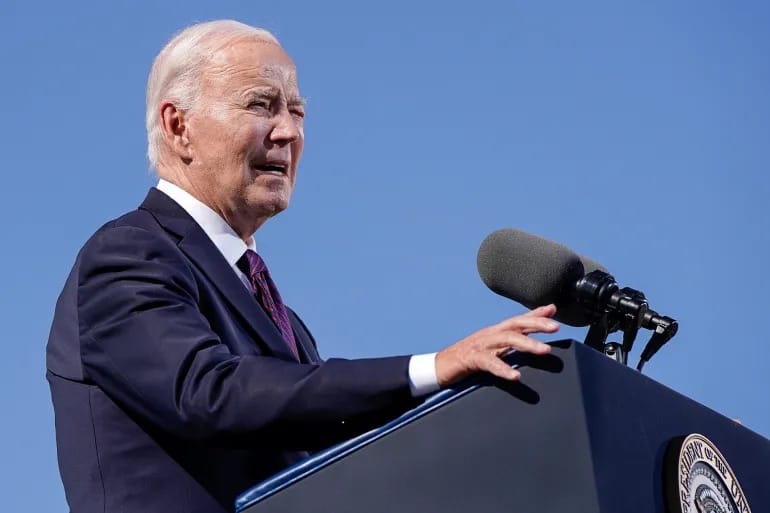Biden apologizes for historical abuses at Native American boarding schools
President Joe Biden has issued a formal apology on October 25 for the U.S. government’s role in operating abusive Native American boarding schools for over 150 years.

President Joe Biden has issued a formal apology on October 25 for the U.S. government’s role in operating abusive Native American boarding schools for over 150 years. The apology took place during a ceremony in Laveen Village, Arizona, where Biden described the legacy of these institutions as “a sin on our soul.”
“This to me is one of the most consequential things I’ve ever had an opportunity to do in my whole career,” Biden remarked, addressing a crowd that included many attendees in traditional tribal attire, who responded with cheers as he spoke about the generational trauma inflicted on Native American communities.

However, the event was briefly disrupted when a pro-Palestinian protester shouted, “How can you apologise for a genocide while committing a genocide in Palestine?” to which Biden responded, “There are a lot of innocent people being killed, and it has to stop.”
The protest highlighted the growing tensions surrounding U.S. support for Israel amidst the ongoing war in Gaza, especially following the Hamas attack on Israel on October 7. This support has prompted widespread demonstrations across the U.S., with advocates calling for an arms embargo against Israel as civilian casualties mount.
Biden’s visit to Arizona marked his first trip to Indian Country during his presidency and is part of his broader effort to solidify his legacy in the final months of his term. The trip is also significant as Arizona is a key battleground state in the upcoming November 5 election, where Democratic Vice President Kamala Harris will face Republican former President Donald Trump.
During the event, U.S. Interior Secretary Deb Haaland, the first Native American to serve as a Cabinet secretary, discussed the ongoing investigation into the painful legacy of federal boarding school policies. A July report from the Interior Department revealed that at least 973 children died in these schools, a harrowing statistic underscoring the profound impact of these policies on Native American families.
From 1819 to the 1970s, the U.S. established and supported hundreds of boarding schools aimed at forcibly assimilating Native Americans by removing them from their families and cultures. This approach mirrors similar historical reckonings in Australia, New Zealand, and Canada regarding their treatment of Indigenous communities.
As Biden navigates the complexities of these pressing issues, the intersecting challenges of historical injustices and contemporary geopolitical conflicts continue to shape the political landscape in the United States.














